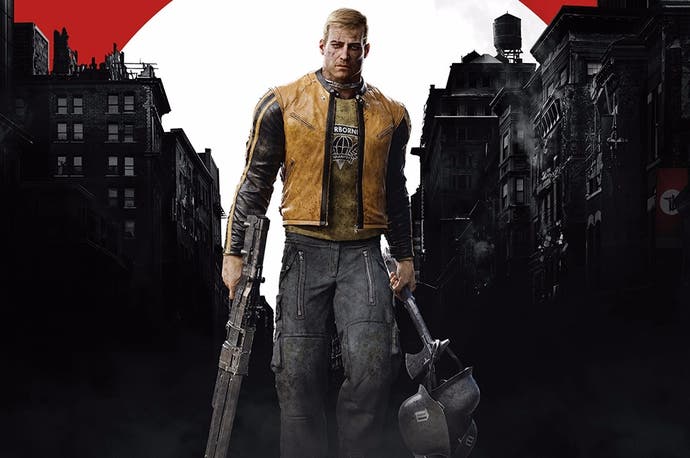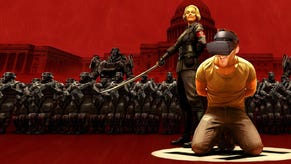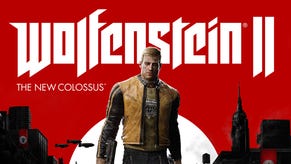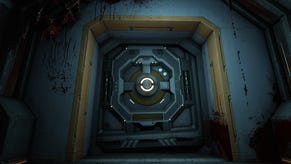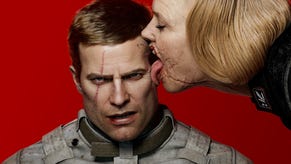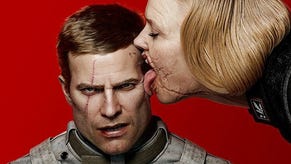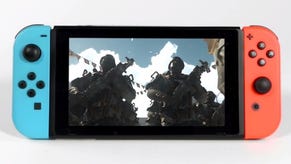Wolfenstein 2: The New Colossus review
Mein BAMF.
Midway through Wolfenstein: The New Colossus, series protagonist BJ Blazkowicz falls to drinking moonshine and talking politics with a lefty firebrand in the sealed-off, waterlogged remnants of New Orleans. The man - a rebel general you've been sent to recruit - screams at BJ about well-heeled imperialists grinding up the proles in capitalism's war machine, and BJ roars back about good-for-nothing bohemians and bolsheviks dodging the draft. The camera circles the table unsteadily, as if waiting to cut in. To the rear, a female college professor crisply picks off Nazis in the street below while an African-American clarinet virtuoso launches into a jazz solo, accelerating the tempo as the scene unfolds. In short order BJ chugs down so much hooch that he topples over into a stupor. Impressed by his forthrightness, the general agrees to join your cause.
It's a pretty good summary for the story as a whole: a stylish and drunken confusion of screeds, motifs and caricatures plucked from the subversive 60s and copiously reimagined, care of an alternate-history premise in which Nazi Germany prevailed over the Allies using gadgets stolen from a mystical Jewish sect. Dreamers, stiffs and crazies raging, bleeding and hugging it out against a steady chorus of gunfire - all of it somehow funnelled into the woozy, battered persona of one of the industry's longest-serving action heroes. There is much about The New Colossus that is clumsy and self-indulgent, even a little reprehensible, but that's because it strains to address ideas big budget first-person shooters seldom dare to, and I would argue that even its failures are worth experiencing. Launched at a time when real-life fascism is resurgent in the USA, it's a game people will be picking apart and mulling over for years to come. It gives great shotgun, too.
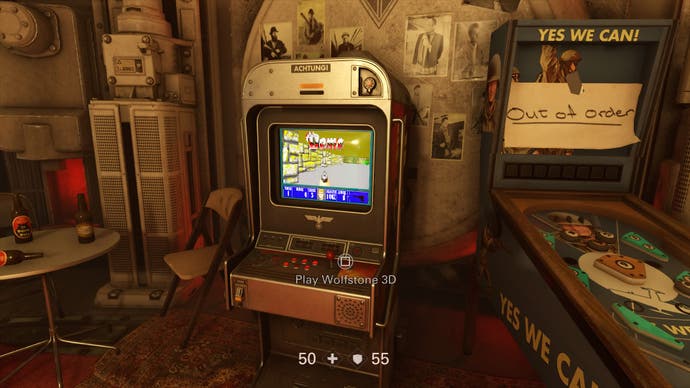
There is a sense throughout that MachineGames wants to leave BJ behind but doesn't know how to let him die. As The New Colossus begins he's fading fast, rattling around the gigantic, wonderfully furnished submarine that serves as your mission hub in a wheelchair with his legs and guts in tatters. Eventually, he obtains an arcane exosuit that restores your ability to walk and duck, but he remains a hero "on autopilot, waiting to hit the wall", as one ally puts it. After decades of war BJ's psyche is imploding, reverting to its point of origin. Early on you're introduced via flashback to his bigoted Texan brute of a dad and beaten-down Polish mother, in a somewhat gratuitous, superficial tale of domestic abuse that does take a more engaging, Gone Home-ish turn in a later level. While squeezing through vents in search of giant cyborgs to blow up or electrocute, you'll hear him mutter to the ghosts of fallen comrades, promising to join them soon. "All they are. All they've felt. Like water. Like it never was."
For the first few hours, I was only too ready for BJ to pop his clogs. The developer's first Wolfenstein game was broadly about rehabilitating an archetype that had run its course, the last gasp of a typically 90s videogame dudebro who had belatedly discovered emotional complexity or at least, the ability to suffer visibly, as a means of staving off irrelevance. The New Colossus initially feels like a continuation of the theme, which is disappointing given its unusual and charismatic supporting cast, but slowly evolves into something a bit more challenging.
Wolfenstein's guilty secret, present in every instalment but only really dwelt upon in this one, is that BJ would make a pretty convincing fascist. As one unsuspecting kommandant observes during a conversation that's straight out of Tarantino's Inglourious Basterds, he's the very picture of the Aryan superman, with a granite jaw, blond hair, shoulders you could park a Panzerhund on and piercing blue eyes to boot. He's also an innately conservative "man of action", in the words of Hitler himself - the product of a toxic upbringing who hides his fear and pain from his sweetheart, drops vaguely Social Darwinist asides like "the old and the weak are doomed", and deals with most problems via an overwhelming show of force, albeit prefaced here and there with a dash of stealth.
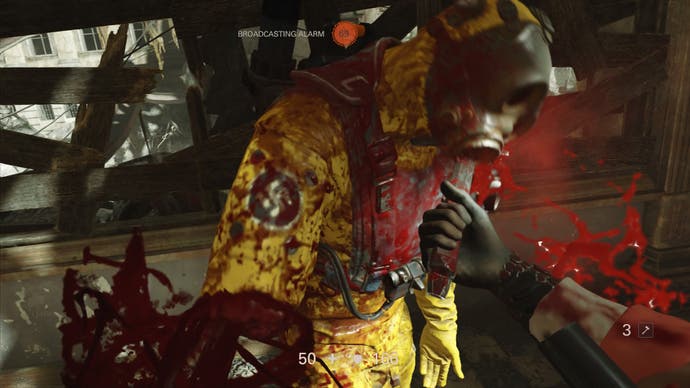
It's credible that, in another telling of this tale, he'd be on the other side of the line, rubbing elbows with the Klansters you'll come across in the game's Galveston level, a sickeningly wholesome middle American town, or chatting with a fellow SS officer about the Fuhrer's purge of Hollywood rather than creeping up behind the pair, axe in hand. It doesn't exactly reassure that all of BJ's weapons and equipment are on extended loan from the Germans. Or that the game's Nazis are obsessed with him, partly because every self-respecting propaganda regime needs a colourful bogeyman, but also you sense, because like recognises like.
This comes across most strongly in a tremendous sequence aboard a space station near Venus, when an undercover BJ must rehearse for the starring role in a film about his own exploits as "Terror Billy" - an opportunity to deconstruct his own legend before scouring the planet's surface for secret codes. Tucked away in the canteen aboard your submarine, meanwhile, you'll find a Nazi-developed version of the original Wolfenstein 3D which pits the upstanding "Elite Hans" against leftwing insurgents and Red Army soldiers, its pixelated walls adorned with Terror Billy's nightmarish portrait. There is a complexity to the game's interrogation of what separates heroes from monsters that is, alas, often undercut by its portrayal of the monsters themselves - smarmy, pantomime goose-steppers who exist simply to be hated, run down and gruesomely dispatched.
As you may have deduced from the fact that I'm only just getting round to the gunplay, The New Colossus is least fascinating as a shooter, though it's a pretty decent shooter nevertheless. Like the New Order, it's a blend of brutality and smarts that accommodates peek-shooting but is also fiendishly geared to keep you moving. One way it does this is by seeding larger map layouts with one or two radio officers, who'll summon reinforcements endlessly until you chase them down. You can do this by stealth, using a distance indicator to corner each sentry before ravaging the grunts, but a shortage of HUD aids (e.g. viewcones) makes it hard to escape detection for long, and in any case, it's more entertaining just to open fire.
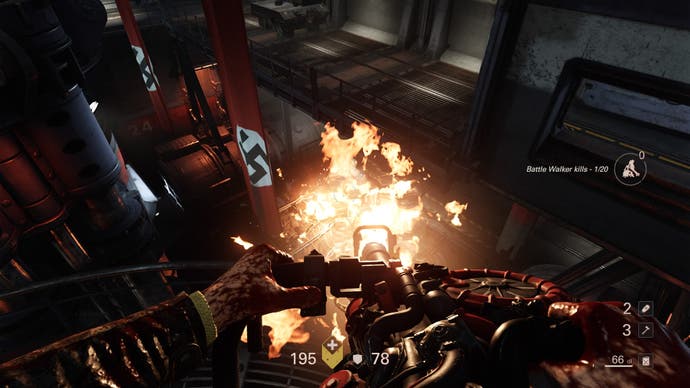
The numerical health and armour system feels archaic to begin with, not least because a lack of cinematic feedback means you often won't realise that you're at death's door, but proves masterful in the long run. Health can be extended beyond the maximum by overdosing on medical packs, but drips away slowly, a mechanic that forces you to hurry onwards if you want to benefit from the extra endurance. Armour, meanwhile, can be blasted from the bodies of opponents and scooped up in passing, allowing you to top up your supply by galloping across the killzone.
It's a recipe for gunfights that, as in 2016's DOOM, hinge on brinkmanship - drilling through advancing columns with dual shotguns blazing, or waddling about in the open with a heavy weapon such as the sizzling LaserKraftWerk, hoping that you'll flash-fry the mob before they bring you down. There are blemishes - the game never quite makes it clear which objects you can climb over - and there are too many metallic corridors or grubby warehouse environments for comfort, but the fundamentals of combat are, by and large, terrific.
All of this is supported by an approach to unlocks that might be my favourite in a shooter, mostly because you don't have to pay it any attention whatsoever. Perform certain feats, such as killing an enemy while your health is overcharged, and you'll fill a little XP wheel, unlocking passive perks that make those feats easier to execute. If you want to dig into a particular tactic, in other words, be it headshots or setting robots on fire, all you need do is play that way to reap the benefits. It's Personalised Search Results: The FPS. There are also weapon upgrade packs that must be tracked down in the world, with around three add-ons per gun. The options here aren't surprising - think larger magazines, rocket ammo for a launcher, or an EMP effect to your grenade - but they're diverse and cleverly applied. You can equip a silencer for the pistol and SMG, for example, but not your long-range rifle, so the game never becomes an exercise in sniping.
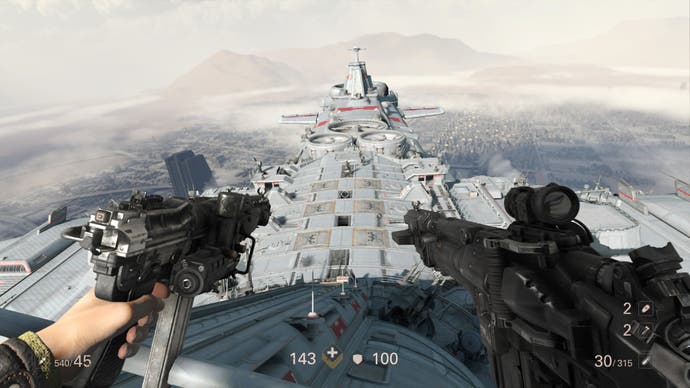
Between firefights you'll rove BJ's submarine base, allowing the squelch of Nazi viscera and the thunder of projectiles to ebb away as you hang out with your decidedly motley crew - Polish resistance fighters, Black Panthers, New Yorkers, Harvard scholars, drawling Southerners and chirping Brits. As involved as BJ's story becomes, especially once a mid-game twist kicks all that early, manly angst to the curb and ushers in some eccentric new abilities, it's these people that keep you plugging away to the finish.
There's Grace, the black power activist who, in one scene, treats you to a withering rebuttal of the use of "balls" as a metaphor for courage while breast-feeding a child. There's Sigrun, a former Nazi who is the centre of a conversation about fat-shaming, and Max Hass, a mentally impaired man whose psychedelic crayon doodles slowly flower across the ship's hull. There is a room containing a pig and a disco ball. Some of the best moments in the game are, in fact, scenes in which BJ is merely an onlooker - fully motion-captured encounters between characters that are stumbled on as you explore, and which are borderline essential in order to get the most out of the main story.
The tone is, admittedly, all over the place, poignant one moment, puerile the next, and the size of the cast also means that no character thread is properly developed, but even the likes of BioWare or CD Projekt could take lessons from the range and dexterity of this game's writing. Once you've polished off the 10-15 hour campaign you can persist aboard the sub, whiling away a few hours tracking down Nazi obercommandos in locations you've already visited using the Enigma machine, and carrying out a small selection of standalone story missions. You can also replay the campaign to explore a variant of the story that hinges on a choice during the prologue, and to try your arm on different unlocks.
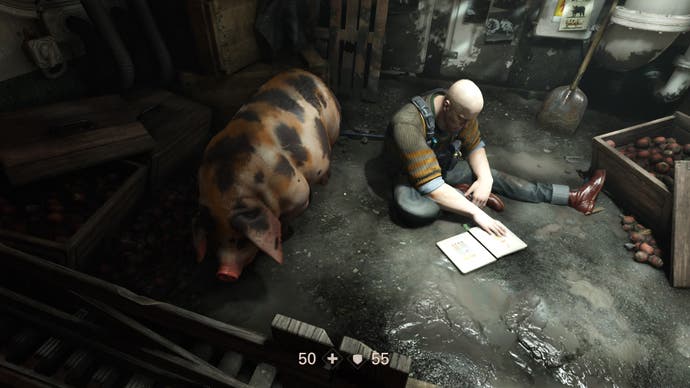
The New Colossus is a game that straddles moods and periods, buffoonery and biting insight, cartoon villainy and insidious real-world malevolence. It is a well-wrought FPS caught on the rocks of some marvelous, horrendous discussions about race, gender, discrimination and complicity. It is frequently crude and half-baked, mixing fart jokes with oafish interpretations of trauma, but also strikingly ambitious and a lot more intelligent than it often seems. What it needs now, I think, is a new lead and possibly even, whisper it, a change of genre. There is more to be said about a character like BJ Blazkowicz, but there is also more to be said about this universe - and our own - than is possible with BJ at the helm.
